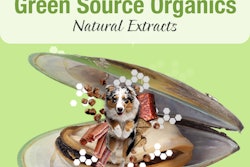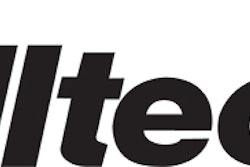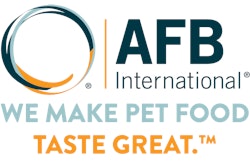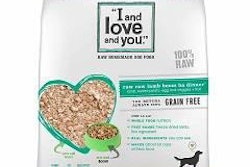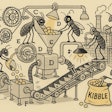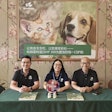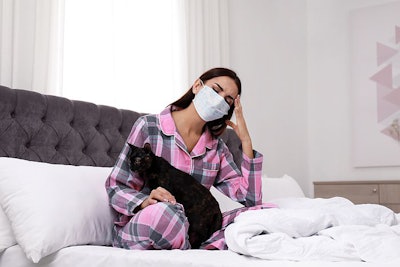
Through their international operations, pet food ingredient, equipment and other suppliers saw the COVID-19 disease grow from a regional outbreak to a global pandemic. As the health crisis expanded, these companies prepared and developed contingency plans for various potential scenarios in the markets where they operate. These scenarios became realities. Dog, cat and other pet food industry businesses implemented measures in line with sanitary standards set by public health experts from the Centers for Disease Control (CDC) and World Health Organization (WHO). The COVID-19 pandemic’s effects remain difficult to predict, although surely devastating, nevertheless pet food industry personnel continue working amid threats, changes and challenges.
Pet food ingredient, equipment suppliers prepare for COVID-19 pandemic
“Being an international supplier of raw materials for animal and human nutrition industries, our supply chain is far reaching,” Lawrence Blitz, president of Green Source Organics. “Through our network, we were alerted to the pandemic in Wuhan, China as it unfolded. Multinationals we work with seemed to be equally aware, and we collaborated to prepare forecasts and beefed up inventories to cover their needs for the remainder of 2020.”
How is COVID-19 affecting your pet food business?
By sharing how your pet food business is coping with the novel coronavirus crisis, you can contribute and learn how the overall global industry is faring.
Similarly, Alltech’s wide network of pet food ingredient, services and testing businesses alerted the company to the threat posed by the coronavirus responsible for COVID-19.
“We began monitoring COVID-19 when it first emerged in China and we learned from our Chinese team’s experience,” Juan Gomez, PhD, global director for Alltech's companion animal business, said. “These are uncertain and challenging times, and preparation and response to these challenges is a must.”
Along with the company’s existing biosecurity protocols, Alltech follows CDC guidelines, he said. Alltech’s crisis management team formulated contingency plans to ensure the supply chains of Alltech and its customers.
“The ability to operate over 100 manufacturing facilities worldwide allows us to shift production if necessary,” he said.
Another company with a global pet food industry footprint, Extru-tech, also saw the storm when it was a cloud. The pet food production equipment and systems company followed guidance from authorities regarding increased hygiene measures, telecommuting options, employee social distancing, and access restrictions for external personnel and visitors.
“Our company took appropriate precautionary measures at a very early stage,” Scott Krebs, executive vice president, said. “Travel, as allowed by authorities, is limited exclusively to urgently needed customer requirements and on-site customer support.
Jared Lozo, president of pet food ingredient supplier AFB International, said his company implemented these initiatives worldwide:
- All non-manufacturing employees have been equipped to conduct business from home and are doing so as much as possible
- Social distancing has been emphasized with meetings being held via video conference
- An infomercial is running continuously in facilities where continued onsite operations are required. It reminds employees to increase personal hygiene practices including hand washing, sanitizing, covering coughs and to leave work or stay home if displaying symptoms of COVID-19
- Modified shift change-overs in facilities to eliminate co-mingling between shift personnel and undergoing complete sanitation protocols at shift change
- Transportation suppliers have been directed to screen drivers to ensure sick or exposed drivers are not putting AFB or customers and suppliers at risk. Truck drivers are being asked to limit contact with employees when delivering products and materials
- Visitor protocols are in place to screen all visitors prior to allowing them entrance into facilities
Pet food packaging manufacturers and COVID-19
Other companies in the pet food industry have taken similar steps, including packaging manufacturers. Peel Plastics implemented all the current recommendations from the CDC, WHO and local health authorities in our facilities, said Mark Liberman, vice president sales and marketing. Peel maintains two-way communications with employees to hear their concerns and inform them of safety updates.
“These plans will allow us to maintain operation with minimal disruption,” Liberman said. “It is very hard to predict what the future will look like, but we are working hard to try to plan for every situation.”
Mondi Consumer Flexibles created a multi-functional task force to focus on the COVID-19 pandemic to monitoring developments, assess risks, provide guidance and implement preventative policies following regulations and recommendations from governments in the countries where Mondi operates, said William Kuecker, vice president of North American marketing.
“Packaging is considered an essential industry and currently exempt from shelter-in-place orders in the U.S.,” he said. “We are focused on meeting the increase in demand for our products while our employees and their families respect all applicable social distancing guidelines.”
Other Mondi reactions to COVID-19 pandemic:
- Suspended all non-essential intercompany and international meetings, trainings and travel
- Suspended internal / external conferences, plant tours and participation in trade shows
- Set up a dedicated Covid-19 information site on group-wide colleague intranet
- Communicated hygiene policies and information campaigns to employees, contractors and customers
- Implemented remote working facilities for the majority of office employees, actively encouraging home-working where feasible, in addition to social distancing and enhanced safety procedures in plants
Pet food buyer demand during pandemic
Pet food industry professionals remain at work in the United States as essential workers by federal guidelines. Dog and cat food sales dramatically increased as pet owners stocked up on needed nutrition for their animals. General Mills’ reported a spike in Blue Buffalo sales in March. Likewise, “I and love and you” pet food sales increased 89% in the week following Friday, March 13, as reports of the virus and quarantine measure spread. The brand’s weekly revenues grew 62% in the second week of March, then 85% in the third week and 91% in the fourth week.
“The time at home is strengthening the bond between pets and their humans,” Lindsey Rabaut, VP of marketing for “I and love and you” said. “We took a recent poll among 200 pet parents, 2 weeks into quarantine and 97% stated that they have grown more connected to their pets than ever before. Pets provide emotional and mental therapy for their humans, and that bond is going to help so many people through this time.”
That time seems likely to stretch on for several more months as the world adjusts to life during a pandemic, then years more as people deal with the psychological and economic repercussions of COVID-19. During that time, dogs, cats and other pets will support people. The pet food industry, in turn, will evolve to support those pets’ nutrition, while trying to keep humans healthy too. All the sources in this article said that their companies maintain a policy of constant adaptation to a suddenly unpredictable future.
View our continuing coverage of the coronavirus/COVID-19 pandemic.



